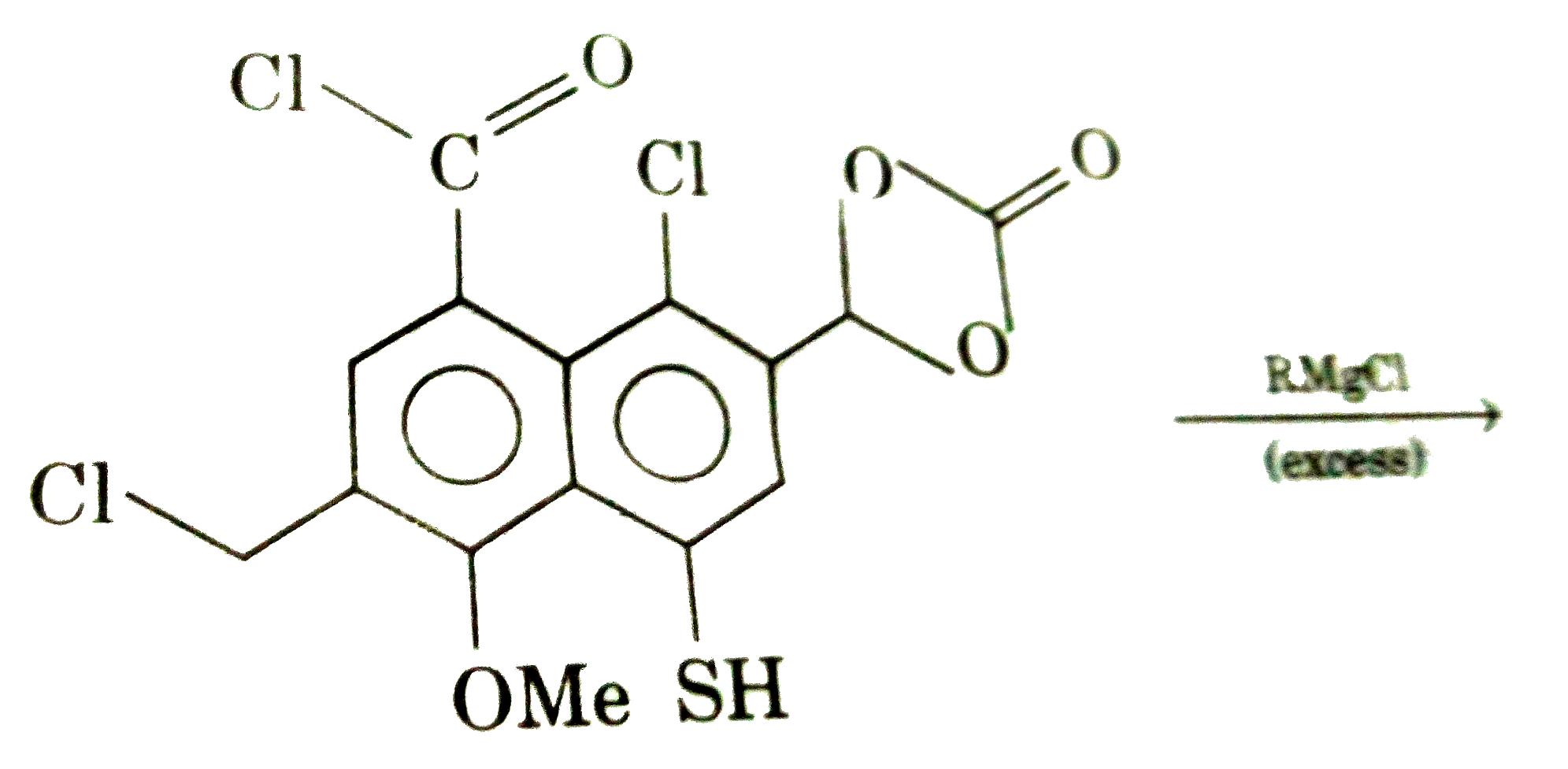9.65 C of electric current is passed through fused anhydrous MgCl2 . The magnesium metal thus obtained is completely converted into a Grignard reagent. The number of moles of Grignard reagent obtained is :
5×10−4
1×10−4
5×10−5
1×10−5
The correct Answer is:C
Mg2++2e−→Mg
2F electricity produces (1)mole Mg
1C electricity produces 12F mole Mg
9.65 electricity produces = 12×96500×9.65molofMg=5×10≡5 mole Grignard reagent (1mole ) mg = 1 mole Grignard .
Similar Questions
9.65C of electric current is passed through fused anhydrous magnesium chloride. The magnesium metal is completely converted into a Grignard reagent. The number of moles of the Grignard reagent obtained is A×10−5 then value of A is
View Solution9⋅65D C of electric current is passed through fused anhydrous magnesium chloride. The magnesium metal thus, obtained is completely converted into a grignard reagents. What is the number of moles of grignard reagent obtained?
View Solution
Knowledge Check
- Question 1 - Select One
9.65 C of electric current is passed through fused anhydrous MgCI2 The magnesium metal thus obtained is completely converted in to grignard reagent th number of moles of gringnard reagent obtained is
A5×10−4B1×10−4C5×10−5D1×10−5 - Question 2 - Select One
9.65 C of electric current is passed through fused anhydrous magnesium chloride. The magnesium metal thus obtained is completely converted into a Grignard reagent. The number of moles of Grignard reagent formed is :
A5×10−4B1×10−4C5XX10−5D1×10−5 - Question 3 - Select One
9.65C of electric current is passed through fused anhydrous magnesium chloride. The magnesium metal thus obtained is completely converted into Grignard reagen t. the number of m oles of the original reagent obtained of
A5×10−4B1×10−4C5×10−5D1×10−5

Number of moles of Grignard reagent consumed per mol.View SolutionThe number of moles of Grignard reagent comsumed per mol of the compound
 View Solution
View Solution9.65C of electric current is passed through fused anhydrous magnesium chloride. The magnesium metal thus obtained is completely converted into Grignard reagen t. the number of m oles of the original reagent obtained of
View SolutionPrimary alcohols are obtained by the reaction of Grignard reagent with
View SolutionPrimary alcohols are obtained by the reaction of Grignard reagent with
View Solution
